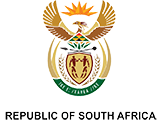Fellow South Africans,
The announcement by the National Prosecuting Authority (NPA) last week that it had reached a settlement with an international company implicated in corruption at Eskom is a huge development in our effort to hold those responsible for state capture to account.
The NPA Investigating Directorate finalised a landmark agreement with Swiss engineering company ABB Ltd to pay R2.5 billion in punitive reparations to South Africa. This in connection with bribes allegedly paid to obtain contracts with Eskom between 2014 and 2017.
This amount, which will be paid into the Criminal Asset Recovery Account, is in addition to R1.6 billion that ABB paid Eskom in 2020 to settle an investigation into allegedly criminal conduct involving contracts at the Kusile power station. Importantly, the current settlement does not indemnify the company or its staff from prosecution.
For the last five years, we have been working hard to end the looting of resources meant for the benefit of South Africa’s people, to prosecute those responsible and recover stolen funds.

When we embarked on this journey, we understood that the results would not be felt overnight.
We first had to rebuild state institutions that had been deliberately weakened, emptied of expertise and rendered incapable of preventing capture by criminal elements. We had to strengthen law enforcement institutions and shield them from outside interference.
One of the most important steps we took was to establish, in 2019, the Investigating Directorate in the NPA to deal with cases emanating from the state capture commission and other corruption-related offences. We recently announced plans to make the Investigating Directorate a permanent structure.
We are now seeing the results of this work. The fight against state capture and corruption is gaining momentum.
In the last few months, several cases have been brought to court, with former executives of state-owned enterprises (SOEs) like Eskom and Transnet charged alongside business people for allegedly colluding to steal public funds.
In addition to the arrests of those implicated in wrongdoing and bringing the cases to court, progress is being made in other areas as well where there has been malfeasance.
For example, work is continuing at Eskom to recover money from irregular and corrupt contracts, recover overpayments and bill contractors for project over-runs.
The Special Investigating Unit continues with its investigations into corruption and mismanagement at state institutions and SOEs, with its Special Tribunal empowered to recover stolen funds.
The South African Revenue Service continues to fight corruption through lifestyle audits and other legislative tools. It is piloting a new unexplained wealth initiative to recover assets suspected of having been acquired illegally or through the proceeds of crime.
The NPA, through the Investigating Directorate, the Asset Forfeiture Unit and other structures, is successfully using preservation orders, asset forfeiture and other tools to tighten the noose around those involved in corrupt activities.
Many of those involved in state capture and their enablers in the private sector saw nothing wrong with diverting public funds to private pockets. At the height of the state capture era, unscrupulous politicians repurposed state institutions for private enrichment and to cover their tracks.
Today we have law enforcement authorities and a prosecuting authority devoted to investigating and prosecuting without fear or favour. We have state institutions committed to fulfilling their respective mandates regardless of the status or influence of any individual or a company.
As a society, we need to give these agencies and the people working in them our full support and encouragement. We need to guard against any efforts to weaken these institutions or undermine their resolve.
Working together, we have, within a relatively short space of time, rebuilt the supporting architecture to investigate and prosecute serious corruption and other crimes.

I have always said that the fight against corruption will not be won easily or quickly, given how many years it took for patronage and graft to become entrenched.
Now that we see that progress is being made, we must do everything we can to ensure that this work continues unhindered and that none of the gains we have made are reversed.
With best regards,

- Tags:
- National Prosecuting Authority /
- NPA /
- Corruption /
- State capture /
- Eskom /
- State-owned enterprises /
- Special Investigating Unit
Tweet




